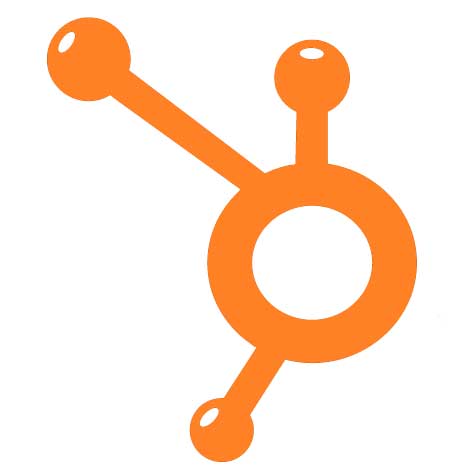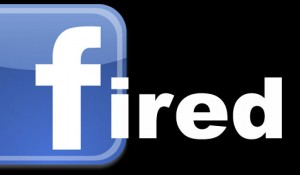The federal Occupational Safety and Health Administration (OSHA) recently issued final rules implementing whistleblower provisions of two acts:
Tags: Consumer Product Safety Improvement Act of 2008, federal OSHA, OHSA, Surface Transportation Assistance Act, whistleblower protection, HR Allen Consulting Services, discrimination, HR Informant, employee
Regardless of the industry or size of the business, employers are responsible for the correct classification of their workers. Failure to correctly classify a worker as an employee or independent contractor can make the mistaken employer responsible not only for the worker’s back employment taxes, but also penalties, warns the IRS.
Tags: IRS, contractor, 1099, W-2, HR Allen Consulting Services, HR Informant, employee
A San Diego Gas & Electric (SDG&E) company employee filed a lawsuit against SDG&E after she was fired because of her Facebook post about a customer. Did SDG&E do anything wrong?
The issue of whether an employer can discipline an employee for his/her Facebook posts has received plenty of attention in the national press. HR Informant previously reported on the National Labor Relations Board’s activity in this area.
If an employee discusses working conditions on his/her Facebook page, that activity may be protected under Section 7 of the National Labor Relations Act (NLRA). Under Section 7, employees in both union and nonunion workplaces have the right to engage in concerted activities, including discussing working conditions, pay or other work-related issues.
In 2011, the NLRB acted against several employers when those employers disciplined employees for work-related comments on Facebook.
In San Diego, the SDG&E employee said she was fired after allegedly posting a comment on a co-worker’s Facebook page about a customer and using the customer’s first and last name. According to the employee, SDG&E told her she was fired because her Facebook post violated the company’s customer privacy policy.
The SDG&E employee filed a lawsuit claiming that the alleged violation of the company’s customer privacy policy is not the real reason for the termination. The lawsuit alleges that the firing has a discriminatory motive.
Though employees may not be fired for an unlawful reason, such as engaging in protected activities, employers still have the right to set and enforce policies protecting the privacy rights of their employees and their customers. It is a balancing act with competing interests: the company’s right to protect proprietary information and obligation to protect customer privacy, and employees’ rights to discuss working conditions.
With the ever-changing landscape, employers should carefully craft their social media policies. Employers may also want to consult with counsel before terminating an employee for conduct involving social media.
Tags: employee fired for facebook post, social media in the workplace, HR Allen Consulting Services, HR Informant, employee, social media, facebook
Few small-business owners look forward to firing an employee, but a day will probably come when you need to do so. Job termination is a delicate situation and should be handled with dignity and respect, as well as knowledge of your legal responsibilities.
Tags: firing, employees, HR Allen Consulting Services, HR Informant, employee, HR Allen, termination
What happens when one of your employees fabricates a sexual harassment claim? A California appellate court recently ruled that an employee who fabricates a sexual harassment claim can be disciplined. Though certain circumstances may warrant disciplinary action, proceed with caution because such discipline could result in a retaliation claim. Joaquin v. City of Los Angeles, 202 Cal.App.4th 1207 (2012)
Tags: employees, HR Allen Consulting Services, harassment, employee, harassment claim, false harassment claim, discipline
So you think you know everything about Independent Contractors and how to define them from an Employee? Do you know that top common misconceptions? If so, then Kudos to you. So for the other millions that are unaware on how to classify an Independent Contractor and are not aware of the misconceptions, I am here to help.
Tags: misclassifying, misconceptions, common misconceptions, HR Allen Consulting Services, independent contractor, employee
Our podcast explains the difference between an independent contractor and an employee. The courts and government agencies use many factors to determine independent contractor status. Calling someone an "independent contractor" does not make him/her an independent contractor in the legal sense. Mislabeling a worker as an independent contractor creates potential liability for employment taxes and penalties, and liability for failure to fulfill the many legal obligations owed to an employee, such as wage and hour requirements. For your own protection, make sure that a person working as an independent contractor truly meets the difficult tests required by law.
Tags: employee vs independent contractor, misclassifying employees, misclassify employees, independent contractor, employee
Employee theft is a big problem for small businesses. According to the U.S. Chamber of Commerce, 75 percent of employees steal from their employers (most repeatedly). A typical business loses as much as five percent of revenues due to employee fraud and, says the National Federation of Independent Business, an employee is 15 times more likely than a non-employee to steal from a company.
Tags: theft, employee theft, employee stealing, stealing employees, theft policy, stealing policy, policy about stealing, policy about theft, employees, employee
Barbara Wein Allen implicitly trusted her employees — until she found out that one of them had stolen some $250,000 from her firm, Multi-Point Communications of Birmingham, Ala.
Everyone appreciates a cheerful co-worker, but employees often experience negative feelings
on the job, too. Episodes of depression, anxiety, or anger can affect your company’s bottom line: The World Health Organization estimates that 35 to 45 percent of workplace absenteeism can be attributed to mental distress. Meanwhile, researchers at Tel Aviv Universityfound that those who described a workplace as “emotionally non-supportive” were 2.4 times more likely to die over the study’s 20-year period, The New York Times reports. Questions posed by researchers included whether or not subjects viewed supervisors and peers as approachable and friendly.
Tags: emotions, employees emotions, employees, employee

























